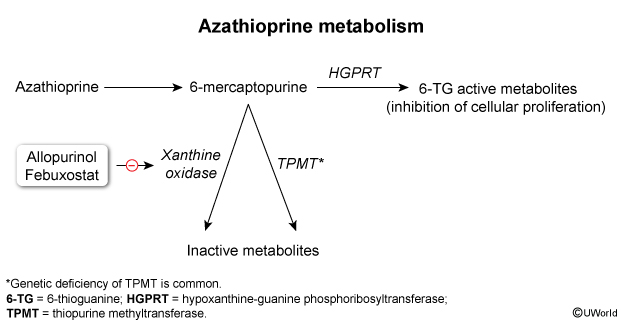Pharmacogenomics
Article Sections
Introduction
Pharmacogenomics concerns how specific genotypes influence drug pharmacokinetics (eg, metabolism, excretion) and pharmacodynamics (eg, efficacy, toxicity). In addition to traditional factors (eg, age, renal function) that affect drug response, genetic variation accounts for roughly 50% of individual differences. Pharmacogenomics is a growing field of personalized medicine that aims to tailor drug choice to the individual.
Genomic variation
Pharmacogenes code for drug-metabolizing enzymes (eg, isoforms of enzymes in the cytochrome P450 [CYP450] superfamily of enzymes), drug targets, drug receptors, and drug transporters. Genetic variants include single nucleotide polymorphisms (SNPs), copy number variations (CNVs), inserts, deletions, and rearrangements. These genetic changes can be:
- Germline (present in every cell of the body).
- Somatic (restricted to specific cell populations, such as clonal mutations within a tumor).
This article focuses primarily on germline variants, which are present in all cells and can therefore be detected from various samples such as a buccal swab or peripheral blood monocytes. (Somatic variants, such as tumor-specific driver mutations, are also pharmacogenetically important but are discussed in a separate article.)
Continue Learning with UWorld
Get the full Pharmacogenomics article plus rich visuals, real-world cases, and in-depth insights from medical experts, all available through the UWorld Medical Library.
Unlock Full AccessFigures
